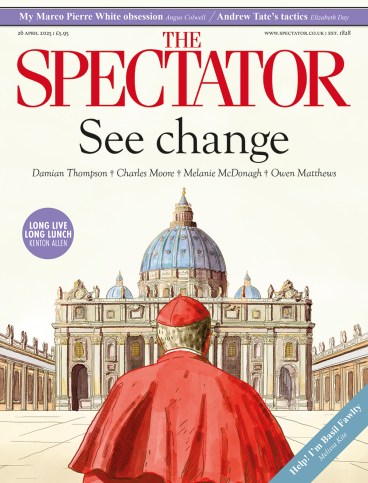
The Friend is an adaptation of the novel by Sigrid Nunez starring a harlequin Great Dane. If I remember rightly, Naomi Watts and Bill Murray are also in the mix somewhere but I can’t be sure. Who could notice anything but Apollo in all his noble, giant, majesty? Watts and Murray are fine – if they are even in it? – but Bing, who plays Apollo, is astonishing. It’s his first role, yet he must be a shoo-in for the Palm Dog prize at Cannes this year.
Even if you’re not into the ‘non-action’ genre it’s worth it for the dog
To be clear, though, this isn’t your usual cute-doggo movie. This isn’t Turner & Hooch. In fact, if you’ve read the book you’ll be wondering: how can it even be a film? Given it’s so meta and literary, given so much of it is about the nature of writing itself? (I’ve never read more Rilke than when I read that book.) This adaptation is a different prospect but Scott McGehee and David Siegal, who wrote the screenplay and also direct, do seem to have captured its essence. It is a graceful, respectful and intelligent interpretation, even if it may prove too dramatically underpowered for some. It definitely belongs to the ‘non-action’ genre.
The novel is narrated by an unnamed writer but here she’s been given a name, Iris (Watts, I think). Iris’s friend and mentor is the literary lion Walter (Murray, possibly), who has just committed suicide and has left her his dog, Apollo (Bing!) This is crazy considering she lives in a tiny Manhattan apartment where dogs aren’t allowed, and there’s no hiding him. (Apollo is so colossal he can barely turn round in it.) Walter’s widow (Noma Dumezweni) lives in a large Brooklyn brownstone but she can’t keep Apollo as she’s never been keen and now he has set himself up by the door where he whines sorrowfully for his master. How do you explain death to a dog?
And do they experience grief? It seems Apollo does and, at first, Iris is his emotional-support human, although as time goes on it turns out they need each other equally. But it still isn’t Turner & Hooch. It is meditative. It is bereavement taken seriously. It is the human-dog bond taken seriously. And along the way it sensitively touches on loneliness, memory, love and writing. Iris should be working on her novel but has writer’s block. She teaches at the university, as did Walter, but today’s students are lacklustre. (‘James Joyce was so… full of himself.’) Iris has a writerly interiority which is why, I’m guessing, characters that are barely drawn in the book – Walter’s daughter; his two ex-wives – are fleshed out here. It would be too underpopulated otherwise.
There is no drama as such. Instead, the narrative propulsion comes from wanting to know what the relationship between Iris and Walter was exactly, why he committed suicide, whether Iris will ever allow herself to break down and will Apollo fit through that revolving door? (Not a chance.) Or commandeer the bed? (You bet.) It is often comic but never goes in for cheap laughs, even though there are instances when it could. No one is allowed to be winsome, not even Apollo. He is a solemn, mournful presence. He is never anthropomorphised, and remains an intractable mystery, which is right and proper, as who knows what goes through a dog’s head? Watts and Murray are also delicately unshowy. (If they are in it.)
The main problem is the same as in the book: why was Iris always so devoted to Walter when he comes across as a monstrously selfish, womanising cad? But such things can often be a mystery, too, and no easy answers are offered. Even if you’re not into the ‘non-action’ genre, the film’s worth it for the dog. There is a dog by the way, did I say?







Comments